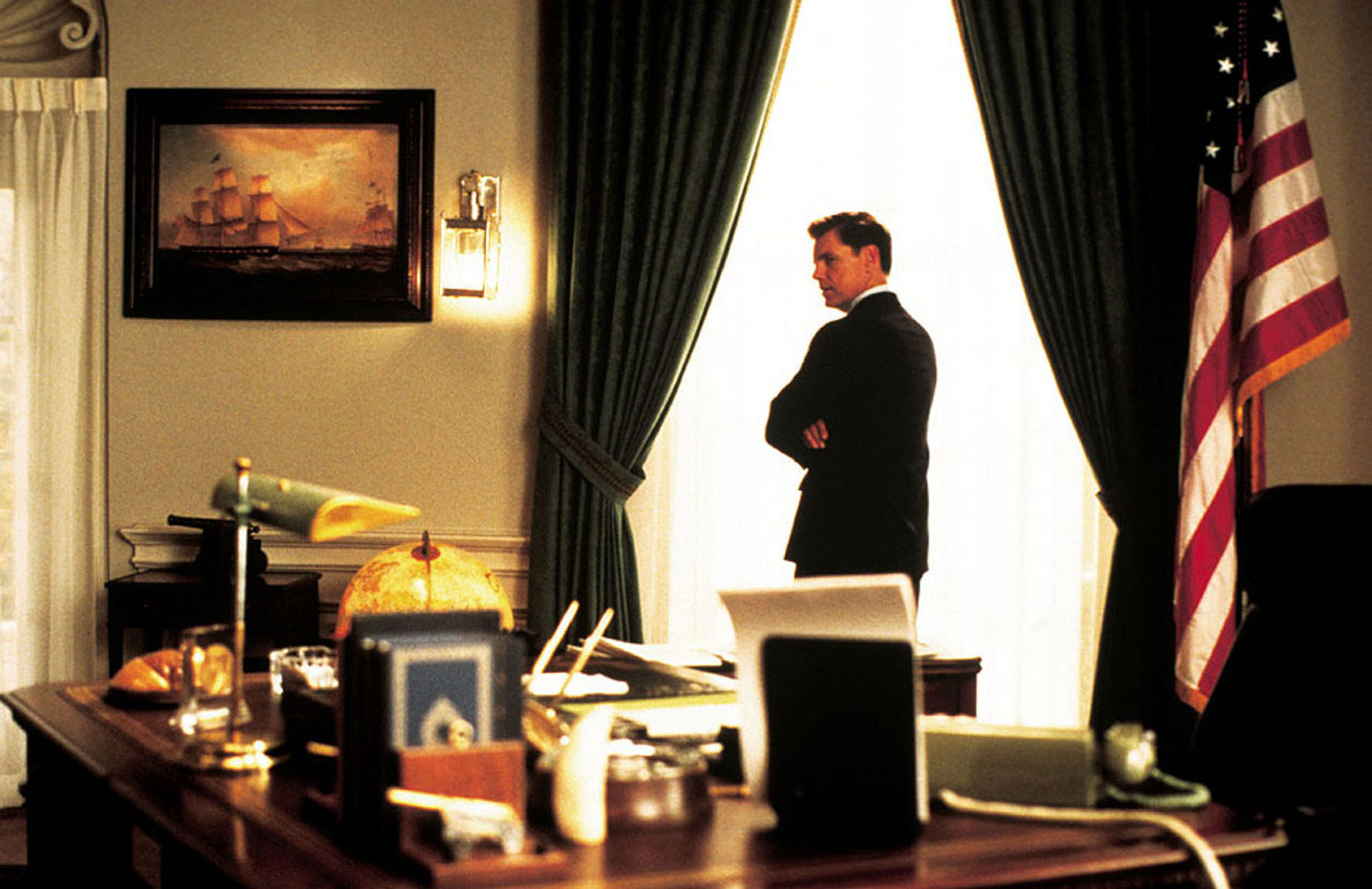
 Normally the presence of Kevin Costner is a sink or swim proposition for me. Sometimes, Bull Durham being the most noteworthy example, I like the guy and in turn I like the film. Other times, Prince of Thieves being the most notorious example although The Bodyguard isn’t far behind, Costner drives me nuts and the film ends up in my "what a piece of crap" pile. Thirteen Days, surprisingly, is a movie that manages to do that which I thought was impossible, survive an onslaught by the "bad" Costner and come away relatively unscathed.
Normally the presence of Kevin Costner is a sink or swim proposition for me. Sometimes, Bull Durham being the most noteworthy example, I like the guy and in turn I like the film. Other times, Prince of Thieves being the most notorious example although The Bodyguard isn’t far behind, Costner drives me nuts and the film ends up in my "what a piece of crap" pile. Thirteen Days, surprisingly, is a movie that manages to do that which I thought was impossible, survive an onslaught by the "bad" Costner and come away relatively unscathed.
I’ll start off with the easy stuff- riffing on Costner, and then I’ll get into the positives.
Why does this guy insist on taking roles with accents? He can’t do them effectively and one would think he’d suffered through enough grief after all that Prince of Thieves silliness. Maybe he thinks if he affects an accent he’s really "acting." Anyway, he’s got one in this film and, as you probably could have guessed, this one sucks too. Sounding like Mayor Quimby from the The Simpsons, Costner presents exactly what I didn’t want to hear; a caricaturish "Kennedy" accent.
Compare the above then to two of the highlights of the film, Bruce Greenwood and Steven Culp who play JFK and RFK respectively. Both men shy away from "recreating" the iconic brothers via Rich Little style impersonation- which would have been a disaster, and instead focus on capturing the essence of the men and the great weight they operated under during this most trying of times.
Greenwood especially impressed and I was lucky enough to meet with him during a recent visit to Boston. During the round table he touched on another of the points that made me like this film.
"… The script focused on such a serious issue and didn’t cartwheel off into Camelot. [It] didn’t ask us to remember that Prince who ruled Camelot with wit and grace and ease… and abundant humor and sexuality… impossibly good energy. That’s not where the script was headed. The script was headed to a much more serious place that asked more serious things of the man. That was a real bonus not to have to go in that traditional direction with him. The script really begged you not to."
The level of research apparent in David Self’s script and the approach mentioned above are what really provide this film with merit. Any other approach and the results may have been unpalatable. The stuff of a made for TV movie- and not a made for HBO production either. Thankfully, Self approached this topic intelligently and with enough humility to realize that the events themselves were enough to drive the film. Choosing to tell the story from the perspective of a Kennedy aide Kenny O’Donnell (Costner) also aided in separating these monumental events from the larger, almost mythic aura surrounding the Kennedy presidency.
Recommended.
This article was originally published in Boston's Weekly Dig (now digBoston) in January 2001.